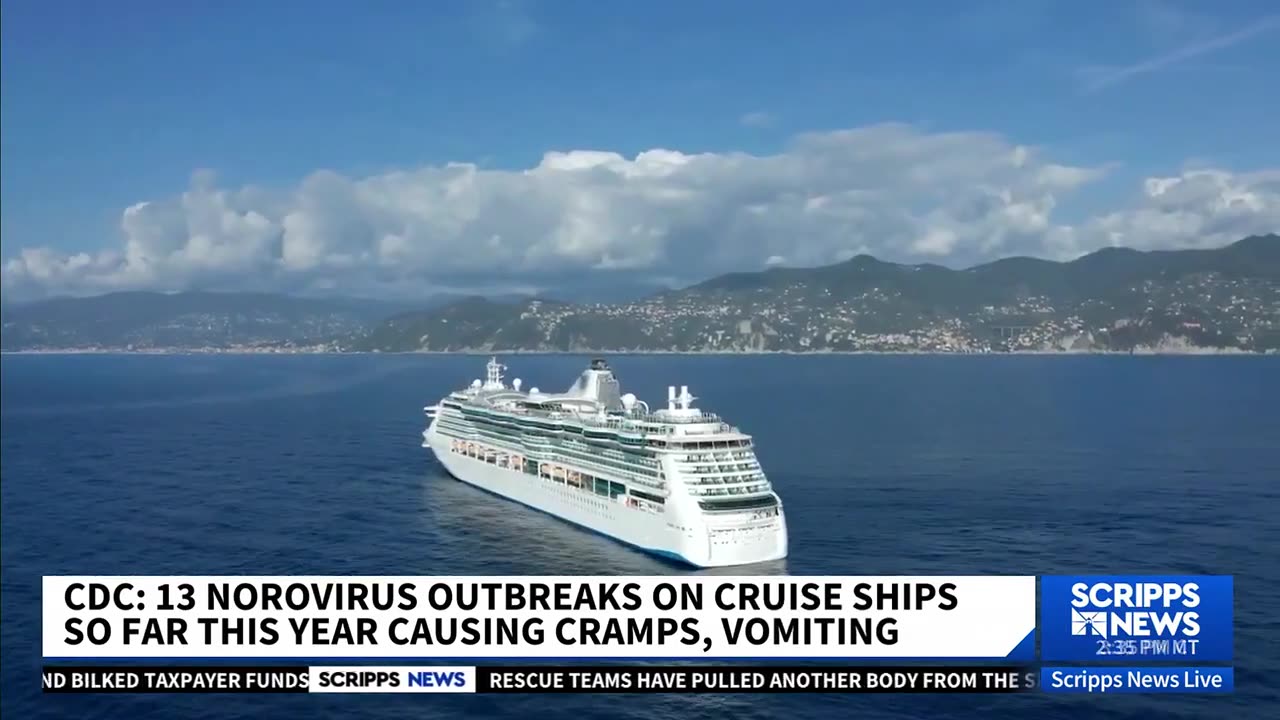Premium Only Content

I'm an ex-USDA food expert - here's how to avoid stomach bugs when eating on vacation and cruises
A stomach virus is the last thing anyone wants on vacation - forced to spend their days off huddled over a toilet.
But a food safety expert told DailyMail.com that could be the reality for hundreds of people getting away on cruise ships.
Dr Darin Detwiler, leading food safety expert in the US, told DailyMail.com viruses like E.coli, salmonella and norovirus are common on cruise ships because of cramped quarters, the thousands of people on board and the high volume of communal food.
The highly contagious infections are spread through contaminated food, water or improper food handling, and cause abdominal cramps, vomiting, diarrhea, fever, chills and fatigue.
In severe cases, those sickened may become dehydrated or go into organ failure and need to be hospitalized.
The CDC's Vessel Sanitation Program (VSP) tracks and inspects outbreaks of gastrointestinal illnesses on cruise ships and in 2024, the agency has recorded 10 incidents, affecting 1,040 passengers.
Of those outbreaks, seven were caused by norovirus, while three were caused by either salmonella or E. Coli.
These viruses are commonly caused by ingesting water or food that has been contaminated with feces, or consuming undercooked food, such as meat, eggs or fish. The viruses can then spread when someone comes into contact with an infected person or a surface a sick person has touched.
Overall, the CDC estimates between two to four percent of cruise passengers experience these illnesses each year.
And with an estimated 31.7million people sailing globally, more than 500,000 could be sickened.
Cruise ships face 'unique challenges' when it comes to food safety, Dr Detwiler notes, 'particularly because they serve large numbers of passengers in enclosed spaces where illnesses can spread quickly. They are like floating cities.'
He added: 'Cruise ships also typically source food internationally, stopping at various ports to replenish supplies. This can result in varying safety standards, especially when it comes to fresh produce, meats, and seafood.'
While most gastrointestinal illnesses involve mild symptoms, vulnerable populations - such as young children, the elderly, and pregnant women - can face more serious complications like severe dehydration, organ failure, 'or in extreme cases, death.'
To reduce the chances of getting sick while at sea, the university professor told this website his seven safety measures.
-
 2:36:12
2:36:12
Barry Cunningham
4 hours agoREACTING TO STEPHEN MILLER | KASH PATEL | TULSI GABBARD INTERVIEWS AND MORE NEWS!
50.1K47 -
 LIVE
LIVE
Alex Zedra
2 hours agoLIVE! Solo Scary Game night
281 watching -
 58:01
58:01
MattMorseTV
4 hours ago $8.36 earned🔴The Dems. just lost 4.5 MILLION voters.🔴
51.8K47 -
 1:04:10
1:04:10
BonginoReport
6 hours agoCornhusker Clink & A Sizzling Border Wall Deter Illegals - Nightly Scroll w/ Hayley Caronia (Ep.116)
116K77 -
 10:22:43
10:22:43
ZWOGs
10 hours ago🔴LIVE IN 1440p! - SoT w/ Pudge & SBL, The Finals w/ The Brrrap Pack, Kingdome Come - Come Hang Out!
6.92K -
 LIVE
LIVE
VapinGamers
2 hours ago $0.49 earnedOff The Grid - Yes I Have a Problem but Winning Aint One! #1 Controller Scrub NA - !rumbot !music
78 watching -

XxXAztecwarrior
3 hours agoThe Finals W/ The Tribe
4.09K -
 2:01:05
2:01:05
Mally_Mouse
11 hours agoLet's Hang!!
23K -
 3:03:27
3:03:27
blackfox87
3 hours agoFoxyFam takes on Warzone! | PREMIUM CREATOR | #DisabledVeteran
23K2 -
 LIVE
LIVE
Spartan
7 hours agoScrims then Ranked / Octopath Traveler 2
26 watching